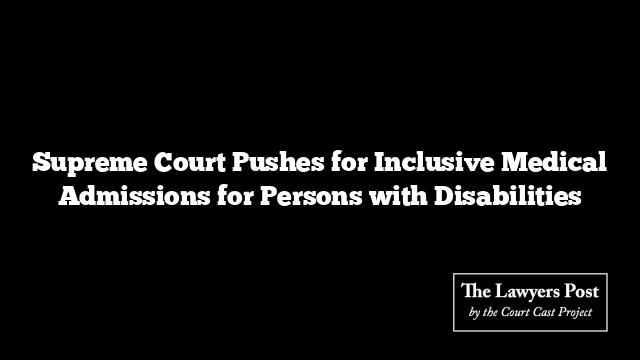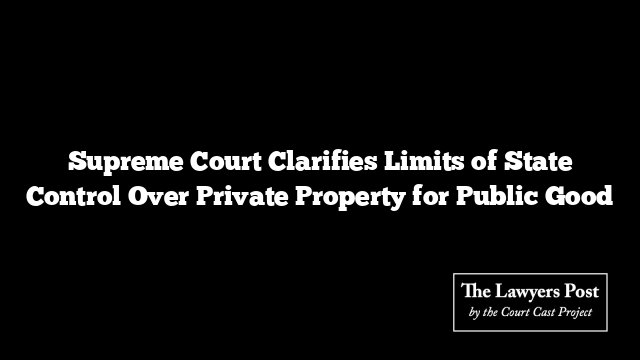In a landmark ruling, the Supreme Court has called for the National Medical Commission (NMC) to establish new guidelines aimed at ensuring persons with disabilities (PwDs) can pursue medical courses. The Court’s decision reinforces the idea that individuals with disabilities are not objects of sympathy, but integral members of society deserving equal opportunities in all sectors, including healthcare.
The judgment came after a candidate with muscular dystrophy was initially disqualified from NEET-UG 2024 admission due to a rule that required disabilities to be under 80% for eligibility. The Court emphasized the importance of creating a medical workforce that is both diverse and sensitive to the needs of the PwD community. The inclusion of PwDs in the healthcare sector, it argued, would foster a more compassionate environment for all, where patients can relate to healthcare providers who understand their struggles firsthand.
In an eloquent statement, the bench noted, “The advancement of rights for persons with disabilities is a national project, along with the eradication of all forms of discrimination.” By acknowledging the lived experiences of disabled individuals, the Court urged a shift in how medical training institutions and assessment boards evaluate candidates. Rather than focusing on quantifying disability, the assessment should prioritize functional competence, offering a fairer and more humane evaluation of an applicant’s ability to succeed in the medical field.
The judgment pointed out that PwDs should have “barrier-free” access to healthcare professions, aligning with the constitutional principles of dignity and equality. It also criticized outdated models that fail to account for the real-life potential of disabled candidates, especially in fields that demand empathy and understanding of diverse patient needs.
Key recommendations included revamping Disability Assessment Boards to ensure transparency, fairness, and an approach that respects human rights. The Court urged that these boards should assess candidates based on their abilities rather than disability percentages, and ensure that medical schools make reasonable accommodations for disabled students.
Highlighting the importance of inclusivity in medical practice, the Court noted, “Diversity within the medical workforce is essential for a diverse society.” By ensuring that PwDs are represented, the healthcare system will be better equipped to serve all patients with understanding and care. The judgment also called for better accessibility in the NEET exam process and for educational institutions to provide necessary accommodations for disabled students once admitted.
In its ruling, the Court has set a clear path forward for creating a more inclusive and accessible medical education system that reflects the diversity of society and ensures that no one is left behind due to their disability.





